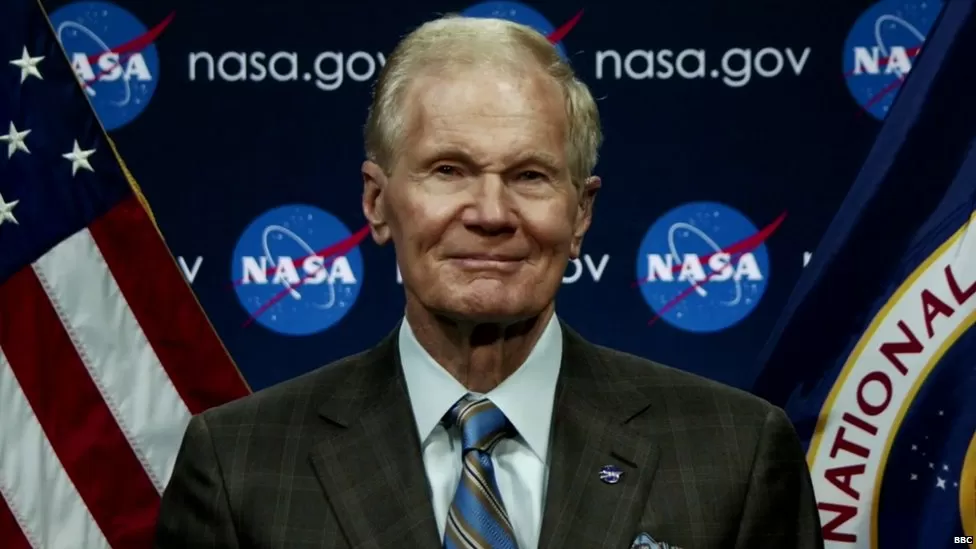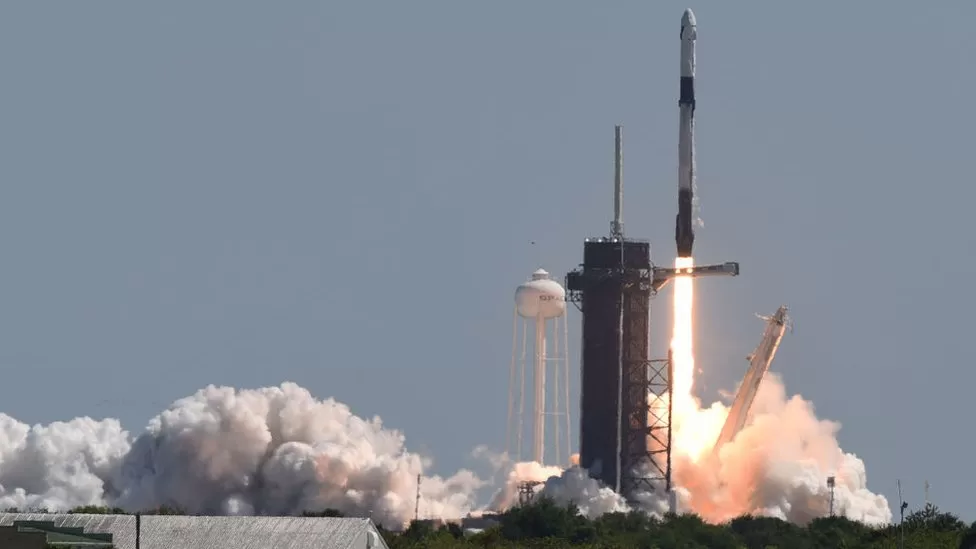NASA Chief, Bill Nelson, stated in a BBC interview that the US is engaged in a “space race with China to return to the moon,” expressing his determination to ensure “we get there first.”
These remarks evoke memories of the 1960s and 1970s when NASA was in a competitive space race with the Soviet Union. However, in a shift from the past, NASA is now collaborating extensively with private companies.
Nelson emphasized the importance of this collaboration, highlighting that it enables the sharing of enormous costs and allows NASA to tap into “the creativity of entrepreneurs in the private sector.”
He cited Elon Musk’s SpaceX as a prime example, which secured a $3bn (£2.4bn) contract in 2021 to construct a lunar lander and has also developed the most potent rocket ever made.
The space race is also proving advantageous for other private firms. Earlier this year, NASA inked a $3.4bn deal with Jeff Bezos’ Blue Origin to construct a lander for subsequent moon landings.
These are merely two examples of companies reaping the benefits of billions of dollars in government funding. This investment is, in part, aimed at maintaining a lead over China amidst the wider tensions between the two largest global economies.

The head of NASA, Bill Nelson, says the US is racing against China to get back to the moon
In late August, India marked its name as the fourth country to accomplish a soft landing on the Moon, uniquely reaching the lunar south pole region. However, NASA’s attention is primarily riveted on China’s space program.
China stands alone in owning a space station, has successfully returned moon samples to Earth, and harbors ambitions to explore the lunar surface’s polar regions. This progression raises concerns for Mr. Nelson, who fears potential territorial claims by China, especially on the resource-rich south pole of the moon. He cites China’s construction of artificial islands in the South China Sea as a precedent that fuels his apprehensions.
Furthermore, Mr. Nelson highlights that China has refrained from joining the US-led Artemis Accords, designed to establish best practices in space and lunar exploration. Despite China asserting its commitment to peaceful space exploration and dismissing US apprehensions as unfounded, the competition is driving substantial investment from NASA. The agency reported a contribution of $71.2bn to the US economy in the year ending September 2021, marking a 10.7% increase from the previous year.
While companies like SpaceX are often in the limelight, NASA’s expenditure permeates deeper into the economy, significantly benefiting small businesses and startups. Sinead O’Sullivan, a space economist at Harvard Business School and former NASA engineer, emphasizes the pivotal role of government as a primary customer, enabling firms to attract additional private investment.
The renewed lunar race is not only high-profile but also a catalyst for a surge in diverse and potentially more lucrative space activities. The number of satellites orbiting Earth has surpassed 10,500, with Russia initiating the trend in 1957. Chad Anderson, founder of Space Capital, attributes the industry’s growth over the last decade largely to SpaceX, transforming a predominantly government-dominated market.
Approximately half of the current satellites were launched in the past three years, primarily by One Web and Elon Musk’s Starlink. Anderson elucidates that the space economy extends beyond rockets and satellite hardware, serving as an essential foundation for the global economy. The escalating number of satellites is fostering innovative applications across various sectors, including agriculture, insurance, and maritime industries.

RocketLab founder Peter Beck sees a space industry worth hundreds of billions of dollars
Based in New Zealand, RocketLab stands as a significant contender in the space economy, rivaling SpaceX. Having accomplished 40 launches for clients such as NASA and various US government agencies, it has established a strong presence in the industry.
Peter Beck, the founder of RocketLab, transitioned from a dishwasher engineer to launching rockets, highlighting the vast financial prospects that space offers. He outlined, “Launch represents a $10bn opportunity. Following that, there’s infrastructure, including satellite construction, which is a $30bn opportunity. Lastly, applications present an approximately $830bn opportunity.”
Beck is not the only one envisioning grand possibilities. Morgan Stanley, a US investment bank, has projected that the global space industry could escalate to a value exceeding $1tn annually by 2040.
As for the future prospects of private space-faring companies, Beck remains skeptical about the economic feasibility of lunar opportunities, especially mining. He remarked, “Currently, undertaking mining on the moon and transporting resources back to Earth is not economically viable.”
NASA’s Bill Nelson, on the other hand, envisions potential in medical research. He referenced valuable research conducted by pharmaceutical firm Merck on the International Space Station in 2019, which contributed to the development of a cancer treatment. Nelson also suggested that manufacturing fibre optics could be more efficient in a zero-gravity environment.
He anticipates a surge in business activities in low Earth orbit, stating, “Eventually, you will witness a plethora of business activities in low Earth orbit.”

